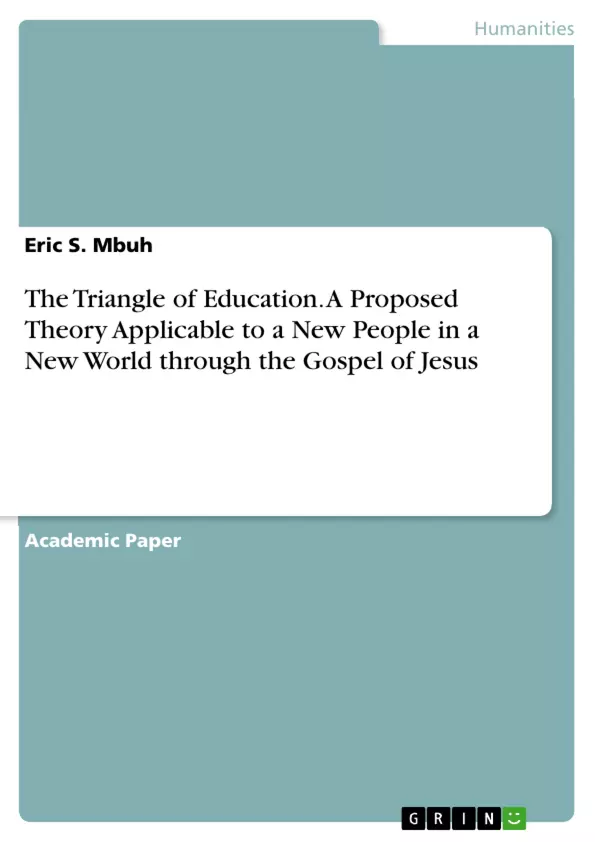The Creator and designer of education had made it to work as a whole. The different philosophies he gave man was to help control the different multifaceted sectors of education in general, and more specifically the transformation of an individual in the society. Although learning is often seen as the main focal point, the education process consists of three equally important pillars that form the triangle of effective education that fits within the intersection of the spheres of the community of inquiry framework. The basic pillars expand to formal, informal and Non Formal. This study is a short explanation of how these three pillars form a basic framework for effective theological training. This is a qualitative study, using a philosophical and analytical research design and illuminate evaluation as research method. This is a proposed theory for effective higher education in Theology and any higher institutions. The triangle of education is formed by formal, informal and non formal. These are the models God is using to transform every area of the society and humans as well.
Inhaltsverzeichnis (Table of Contents)
- Introduction
- Background of the study
- Statement of the Problem
- Significance of the Study
- Definitions of terms
- Philosophy
- Metaphysics
- Epistemology
- The meaning and purpose as rooted in God
- Triangle
- Education
Zielsetzung und Themenschwerpunkte (Objectives and Key Themes)
This paper aims to propose a new theory of education, the "Triangle of Education," that encompasses formal, informal, and non-formal learning. It argues that this model, rooted in God's design for education, offers a comprehensive framework for effective theological training and broader societal transformation.
- The biblical foundation of education and its role in the Christian faith.
- The importance of the home, the church, and the school as integral components of God's educational system.
- An exploration of Deuteronomy 6:4-7 and its injunction to train and educate the young.
- The interconnectedness of formal, informal, and non-formal education in shaping individuals and society.
- The "Triangle of Education" as a model for effective higher education in theology and other institutions.
Zusammenfassung der Kapitel (Chapter Summaries)
The introduction highlights the enduring significance of education within the Christian tradition, tracing its roots from the Old Testament to the 21st century. It critiques the tendency to isolate formal schooling from informal and non-formal learning within families and communities.
The background section delves into the educational framework within the Old Testament, focusing on the Book of Deuteronomy. It criticizes the emphasis on source criticism in scholarly research and advocates for a more holistic understanding of the text's educational messages. The section also outlines the specific focus of the study: examining the injunction to train and educate in Deuteronomy 6:4-7.
The "Definitions of terms" section clarifies key concepts, exploring the nature of philosophy, metaphysics, epistemology, and the meaning and purpose of education as rooted in God. It also defines the "Triangle" concept, emphasizing the equal importance of formal, informal, and non-formal education within God's design for human development.
Schlüsselwörter (Keywords)
This study explores the core concepts of education within a Christian context. It focuses on the "Triangle of Education," encompassing formal, informal, and non-formal learning. Key terms include: biblical education, Deuteronomy, theology, transformation, societal impact, and the relationship between faith and education.
- Quote paper
- Master in Theology (Administration and Leadership), Masters in Theology (Edu) Eric S. Mbuh (Author), 2019, The Triangle of Education. A Proposed Theory Applicable to a New People in a New World through the Gospel of Jesus, Munich, GRIN Verlag, https://www.grin.com/document/494240



